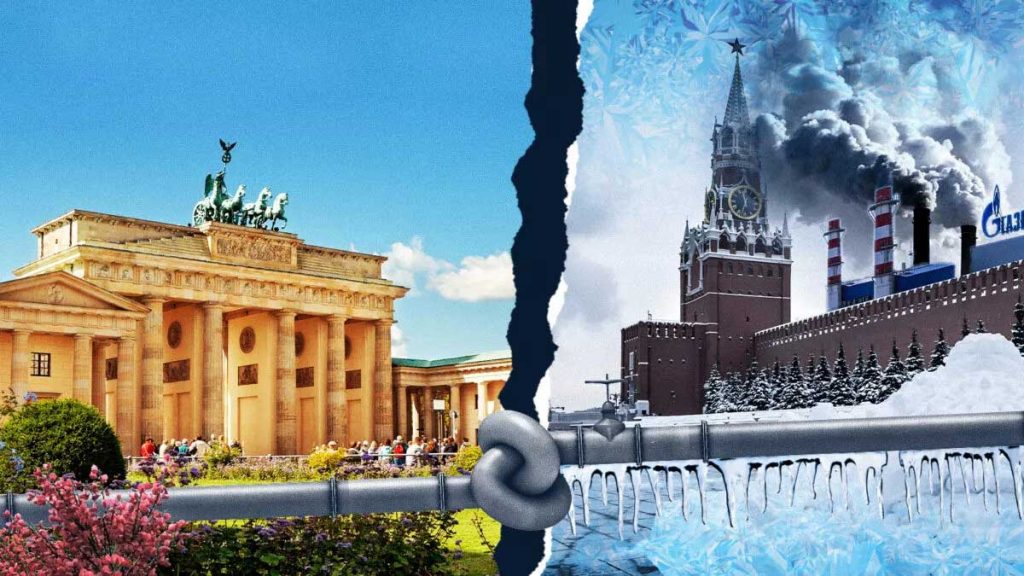Russian state-controlled and other pro-Kremlin outlets continued to push hackneyed disinformation tropes about European energy problems despite mounting energy woes in Russia. Two years after Russia launched a full-scale invasion of Ukraine, social discontent in Russia is heating up.
Table of Contents
By EUvsDisinfo | March 07, 2024 —
Despite massive repression and laws criminalising opposition to the war, scattered protests have broken out. In some, the wives of Russian soldiers demand that their husbands come home. Other protests, however, focus on heating blackouts and outages in the midst of sub-zero temperatures.
Since Putin cut off gas supplies to Europe in 2022, pro-Kremlin propagandists have gleefully predicted that Europeans will freeze in winter. They’ve been wrong again and again. Meanwhile, not far from Moscow, cold and desperate Russians recently took to making online videos of their plight.
But as the Kremlin knows, disinformation never lets reality get in the way of a good story.
In recent months, Russian state-controlled and other pro-Kremlin outlets have continued to push their hackneyed disinformation tropes about European energy problems despite mounting energy woes back home. Let’s have a look at recent trends.
The old bait and switch
Any story about energy, for Russia, is ultimately about Western sanctions and why they must be removed. In fact, a central paradox of pro-Kremlin disinformation is that while the Kremlin claims sanctions have no effect upon Russia or are even strengthening the country, Russian leaders including Putin also clearly want them lifted as quickly as possible. The Kremlin has even tried to blackmail Europe with gas, saying that its gas cut-off that began in the late summer of 2022 won’t end until Europe lifts its sanctions.

Pro-Kremlin propagandists bundle together the European sanctions on Russia with high energy prices as a single issue. In that way, any economic damage on Russia itself is not the fault of Russia’s illegal invasion, but rather the fault of sanctions – a neat application of the old Kremlin principle that Russia cannot be held responsible for its actions. Instead, culpability must be shifted elsewhere, here to the European states that enacted sanctions as part of the EU’s response to Russia’s illegal and illegitimate invasion. It’s the old bait-and-switch: bait the reader with high energy prices, and then switch to blaming sanctions.
Sure enough, in the past few months, pro-Kremlin media was full of commentators proclaiming that high energy prices are closing down factories, de-industrialising Europe, and impoverishing Europeans. But the real fault lies with the Kremlin’s own horrific choice to invade a peaceful sovereign country. If Russia really wants sanctions removed, it needs to stop committing war crimes and remove its troops from Ukrainian territory, as the UN has demanded.
Target: Germany
In particular, Russian state-controlled and other pro-Kremlin outlets are obsessed with Germany’s supposed economic disintegration. It is true that German GDP shrank by 0.1 per cent in the third quarter of 2023. But calling that figure a ‘collapse’ is absurd.
For what it’s worth, gas prices in Europe have gone down dramatically. In part, that’s because of smart investments in renewable energies that lowered demand. And yes, German industrial production has fallen in recent months, a fact that Russian disinformation specialists use to proclaim a terminal industrial decline in Germany and in Europe as a whole.
The silver lining of the current crisis, then, is that transitioning to renewable energies(opens in a new tab) and natural gas suppliers who are not Russia will eventually result in a stronger and more independent Germany and Europe. The Bundesbank forecasts a return to modest growth in 2025. Meanwhile, while much of the world looks to decarbonise, Russia itself remains dependent on oil and gas, even as revenues have recently declined.
Green is the new (EU) blue
The Kremlin also wants you to believe that renewable energies are a joke and that nothing can save Europe from its everlasting dependence on Russian oil and gas. One pro-Kremlin commentator, for example, claims that Europe has no choice but to return to Russian gas before renewable energies can replace fossil fuels. Another article alleges that Western ‘green energy’ has not materialised. And this piece claims that Europeans are still gorging on Russian gas.
It is true that some Russian gas continues to make its way through pipelines into Europe. But it is also true that while 39 per cent of the EU’s gas came from Russia in the third quarter of 2021, by late 2023, that figure had plunged to 12 per cent, and the value of EU imports from Russia had fallen by 81%. In addition, renewables in Europe are coming online fast, helped along by EU policies.
International trade is a complicated business, but the trend is clear. Europe is diversifying its energy supplies, and ridding itself of its dependence on Russian sources. For that, the Kremlin has itself to blame.










